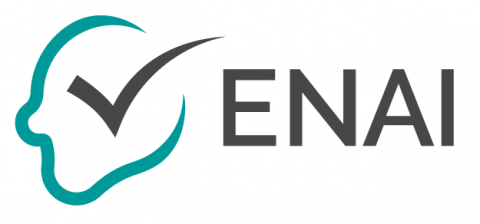Accreditations:
 |  |
Memberships:
 |  |
The Nineth Inter-Chair Meeting of the Departments of Management, Organization and Entrepreneurship of the Southeastern Europe at the School of Economics and Business, University of Sarajevo, began with a presentation by our keynote speaker, professor emeritus Hasan Muratović, a former rector of the University of Sarajevo and a longtime professor st School of Economics and Business in Sarajevo, and the theme was „Theories of Management: traditional and modern considerations“. The main panel under the title „The Fourth Industrial Revolution and Management: Management 3.0 – the new paradigm“ was also hosted by a longtime professor of management at School of Economics and Business in Sarajevo, Aziz Šunje, PhD.
In his presentation on the traditional and modern theories of management, professor Muratović pointed out that the development and changes of the society, economics and technology are the main causes and reasons for the necessary changes in the roles of managers and theory of management. „The roles of the manager and theory of management, from the first theories of scientific management until today, have been in the constant process of change. The development and changes of the society, economics and technology are the key causes and needs for a change in the roles of the manager and theory of management.“, said prof. Muratović. In his presentation, prof. Muratović spoke of the key functions of the 21st century which have had both positive and negative impacts on the role of managers, and he emphasized that there were two key characteristics of modern managers that help them carry out four key functions of management: capability for partnership with IT professionals and capability for leading and participating in IT projects. „Basic concepts of modern organization are: an increase in the exchange of information and knowledge, and opposing specialization and experts' dependence on hierarchy.“, said Muratović.
He ended his presentation with thoughts on the key issues of his profession: What is it that we need to teach students and entrepreneurs? What is the content that management study books should have? What roles should be given to the most capable managers in order to recruit them and keep them? How to make sure that there is a constant transformation of the processes, tools and organization at the operational level which is becoming more and more strategic?
The aim of the panel discussion „The Fourth Industrial Revolution and Management: Management 3.0 – the new paradigm“ is to see the ways in which the fourth industrial revolution based on artificial intelligence and biotechnology will influence business management. Prof. Aziz Šunje pointed out: „There is no doubt that businesses in the future will be managed in a paradigmatically different way. Our intention is to examine the ways in which businesses will be managed in the times to come. Also, there is no doubt that the fourth industrial revolution will significantly change the way of educating people who want to learn how to run businesses, in the context of the curricula structure and classes organization“.
The second part of MANIKS 2019 was organized in three parallel sessions: „Encouraging people in the new age“, „Development in strategy and organization“, and „Corporate entreprenurship (internal entrepreneurship): The paradigm of organization development in the 21st century“. The first session „Encouraging people in the new age“ was dedicated to the micro aspects of management which are focused on human potentials. In this session, the participants discussed the influence of technological revolution on the design of working places and on the shift in the approach to motivation within an organization through processing the questions of making balance between private and professional lives, demographic changes, new paradigms in leadership, organizational climates and cultures, trust, talent for management. The session „Development in strategy and organization“ discussed the issues of strategic decision, companies' social responsibility, global competitiveness and organizational design in times of technological changes.
The session „Corporate entreprenurship (internal entrepreneurship): The paradigm of organization development in the 21st century“ presented the field of entrepreneurship through the always popular questions regarding the involvement of women and young people in the public sector entrepreneurship, etc.
Local doyens of management – prof. Zijada Rahimić, prof. Senad Softić (the current Governor of the Central Bank of B&H) and prof. Elvir Čizmić – hosted the above mentioned sessions, and the participants were: Vice-Governor of the Central Bank of B&H, Ernandina Bajrović, Full Professor at Faculty of Economics at Split, prof. Srećko Goića, director and owner of „Širbegović Inžinjering“ company, Faruk Širbegović, director of Hastor Foundation and a member of the Management of Prevent Group, Seid Fijuljanin, prof. Zijada Rahimić, Dženan Kulović, PhD, director of PING company, Muamer Bezdrob, the representative of „Everestconsulting“ company, Edib Ahmetspahić.
A special session „Successful regional business stories“ was hosted by Jasna Kovačević, Assistant Professor at SEBS, and the participants were: Manager of Research and Counceling and the main economist in Raiffeisen Bank in B&H, Ivona Zametica, director and owner of the company „Širbegović Inženjering“, Faruk Širbegović, and a Full Professor at the Department of Management and Organization, Elvir Čizmić, PhD. During the session, the participants discussed the factors of success in the regional context and in modern challenges, singling out the companies' social responsibility and their adjustments to the changes arisen due to the fourth industrial revolution.
MANIKS 2019 ended on Saturday, on September 21st 2019, with a final workshop under the title „Effects of the past gatherings and conferences – encouragement for future cooperations“ – hosted by Amra Kožo, Assistant Professor at SEBS, and with the announcement of the next year meeting's host.
We owe special thanks to the sponsors who decided to support a project as significant as this one. Raiffeisen BANK dd Bosnia and Herzegovina was the diamond sponsor, ŠIRBEGOVIĆ INŽENJERING d.o.o. for engineering, projecting and construction as the platinum sponsor, HIFA – OIL TEŠANJ golden sponsor and MS&WOOD as the silver sponsor. Friends of the project are: VISIT SARAJEVO, SARAJEVO CANTON TOURIST COMMUNITY and the City Hall Sarajevo. Media sponsors of the Nineth Inter-Chair Meeting are: Radio Sarajevo and Business Magazine.